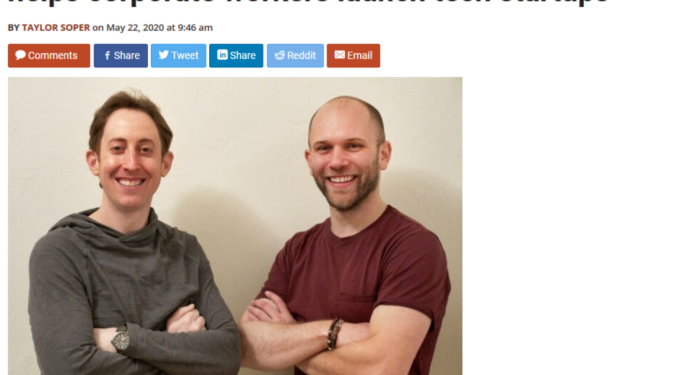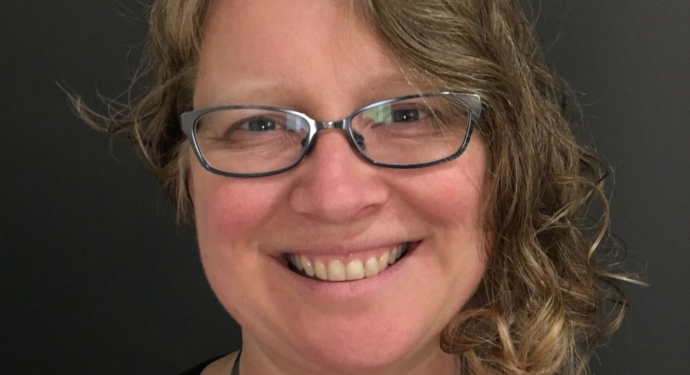1. What were you doing before you quit your job?
Leading global Product and Design teams at Axon (www.axon.com), a $4B tech company. Oversaw five major product efforts – two in hardware and three in software; as well as setting the global vision for a consolidated product suite that offered unique and significant value to our end users.
2. When did you realize you wanted to quit your job?
When I found myself spending more time in admin and corporate meetings, putting together decks and reviewing spreadsheets, than I was on users and customers, developing new and valuable product ideas, and shepherding them through the development process. It is exceedingly rare for senior company executives to be creators – their principal job is organizing the rest of the company to enable creators to do their very best work, and then hold those creators accountable for hitting a very high standard of performance. I found I’d rather have more creation and less executive planning sessions.
3. What initial hesitations did you have about quitting your job and how did you overcome them?
What stops most people, I’ve found, is not money or talent or even a good idea. It’s being completely unafraid to be publicly wrong. Most highly talented and intelligent people, no matter how humble they are, secretly believe they’re right far more often than they’re wrong, and arrange their lives so that the world they live in feeds an affirmation of this belief back to them. Quitting a full-time job to start something is leaving a world where you have been 90{7da1b4016315e6906389b7680f0f0ab0dbfee16dff356723890b92cef8bfc446} right and 10{7da1b4016315e6906389b7680f0f0ab0dbfee16dff356723890b92cef8bfc446} wrong to enter a world where you are at least 90{7da1b4016315e6906389b7680f0f0ab0dbfee16dff356723890b92cef8bfc446} wrong and only 10{7da1b4016315e6906389b7680f0f0ab0dbfee16dff356723890b92cef8bfc446} right.
I overcame this in two ways. First, I’ve done enough things in my life, like serving in the Marine Corps, that losing some money and having a bad business idea doesn’t really scare me. Second, and more usefully for others, I had a friend give me this framework: “A good startup takes something that is entirely broken and tries to unbreak it, a little bit at a time.” Everyone who’s naturally a builder likes to take broken things and make them work, and putting it in this broken/unbroken frame, rather than a failure/success frame, helped quiet those dastardly little negative voices in my mind telling me not to try.
4. Can you remember the day you put in your notice? What was it like, what was going through your mind, how did your manager take it?
Yes. It felt like a release, and made me fundamentally happy. I’ve never spent a single minute second-guessing it.
5. What are you doing now?
Helping people get paid fairly. We do this by evaluating their offer letters and supporting them in the negotiating process as they change roles; and by providing market data to determine whether they’re currently being paid fairly if they’re already employed. We help people increase their compensation by tens of thousands of dollars, but the user feedback is the real gas in the tank. People are alone and anxious in this hugely critical moment in their careers, and we do our best to be there for them, and support them, as they make a transition.
6. Looking back on your experience of founding a company, what do you know now that you wish you knew before? Are you happy with your decision?
Starting a company is about as close as you can get to a maximal professional learning experience, which is why everyone who does so writes a book about it (or at least tries to). Of everything I’ve learned so far, the two that stand out the most are:
- Teams win. A good co-founder is better than a great business idea. Don’t go it alone if you can avoid it.
- Emotional resilience is more important than intellectual strength. In startups, everything is broken – and remains broken, day after day after day. And you have no excuse, no external factor, to point to as an absolution for your failed effort. Build your ability to face public and repeated failures with equanimity and resolve.
I could not be happier with my decision. As with having kids and getting married, my only regret is not doing it earlier. Five stars, highly recommend.
7. Any other advice you can share for others contemplating a similar path?
Each startup success has the unique factors that made it so, and every startup failure has the same. The best extrapolation I can give you is to hone your business instinct for what might work and what might not in every aspect of a technology business. Only at big companies do you have the time and data to make comfortable decisions. Unfortunately, the speed at which those companies operate means you won’t get enough practice attempts at uncomfortable decision-making just by working there. So here’s some ideas that can accelerate your learning:
- Build a ten-slide pitch deck – on any idea – every week, and share it with a friend or colleague who’s not afraid to engage seriously with it and tear it apart in front of you.
- Do a UX teardown of a product you admire and build what you think their roadmap should be. Who are their user personas? What’s the value prop and business model? What are the buyer alternatives? What are the design choices being made? What feature should be dropped, and what missing feature should be added?
- Build a simple website, integrate payments, content, and social, put some ads up somewhere – find out for yourself what’s hard for you, and what’s not.
- Figure out your own ways to force yourself to get more practice in product and business ownership so that when you do make the big leap it doesn’t feel big at all.
And, lastly, don’t sweat the failure. That equity vesting package you’ve currently got is just a narcotic administered by your corporate overlords to silence the voice inside you saying it’s time to build the thing you really want to build. They’ll always be there if you ever need to go back. Go get building.
Learn more about Earner
Learn more about Sayce William Falk




